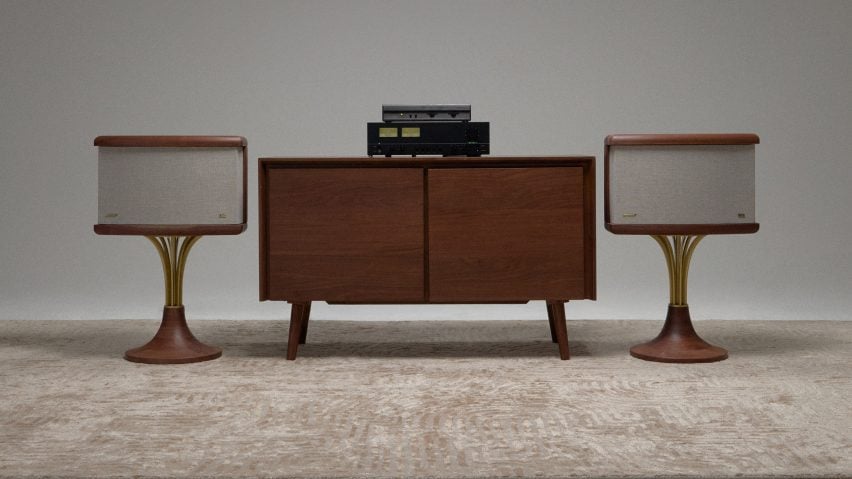
Kith and Mark Jupiter update Bose 901 speaker that "reinvented sound"
American apparel brand Kith and Brooklyn furniture designer Mark Jupiter have housed Bose's reissued 1960 speakers in sleek wood casings and metal bases.
Kith was tasked with reimaging the casing for the Bose speakers to mark its 60th anniversary. The company worked with the Massachusetts-based audio engineering company to present a contemporary take on what has become a well-known design since it first hit the market in 1968.
The result was a limited collection – only twelve pairs were made – with an updated version of the original hardware. This is significant in its inclusion of backwards-facing speakers that reflect sound off of walls, creating an enveloping sound effect.
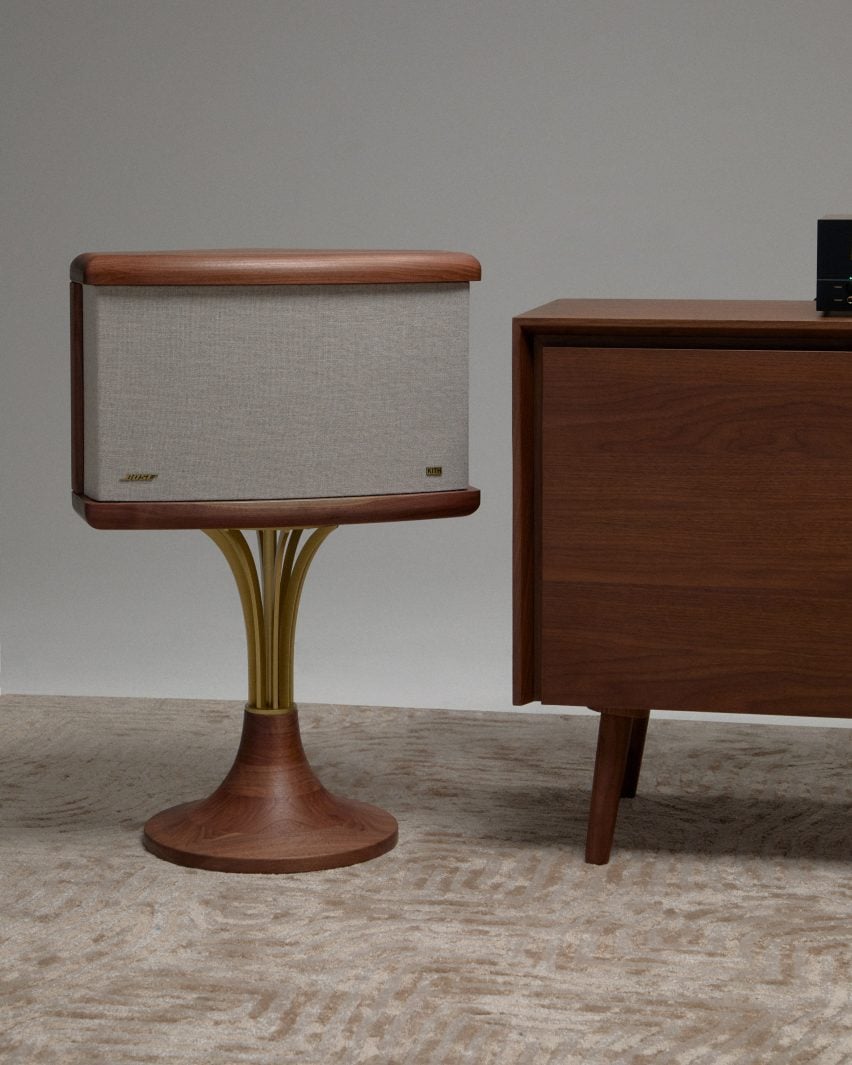
This hardware was placed in wooden cases to highlight the speakers' potential as decor.
"The way people used to house these speakers in their home, I felt like they were more furniture pieces than anything else — even though [Bose] reinvented sound with these speakers," Kith founder Ronnie Fieg told Dezeen.
"It's that time to respect the design and understand how timeless it was, and all I'm trying to do is build around it because the 901 is iconic beyond words."
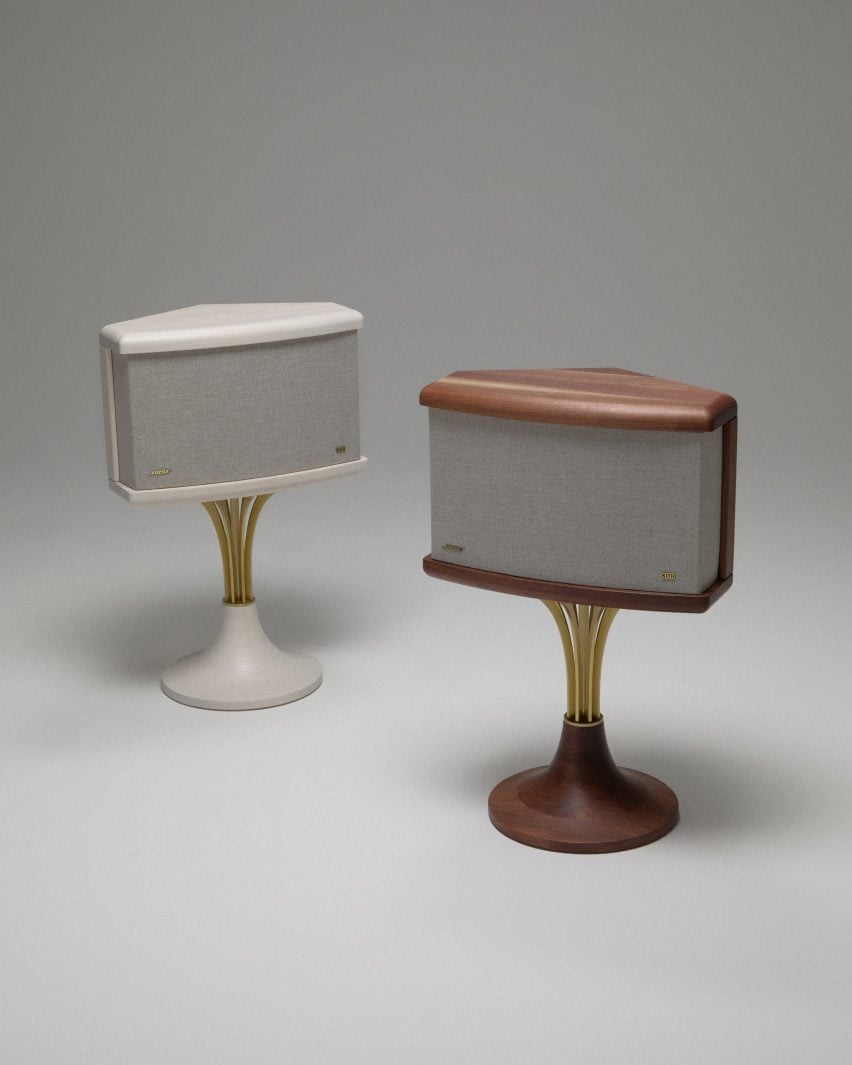
Fieg noted that his admiration for the speakers and consistent dedication to music and music culture made the collaboration make sense.
To arrive at a conjunction between "timeless" furniture and sound, Fieg tapped Jupiter to frame the speakers.
The two have worked together in the past, with Jupiter designing wooden furniture and interior architecture pieces for Kith's retail and Fieg's personal homes.
"Seeing [Jupiter's] work combined with the way I listen to music, it's a natural progression of how we work together," said Fieg. "It's furniture that serves a function."
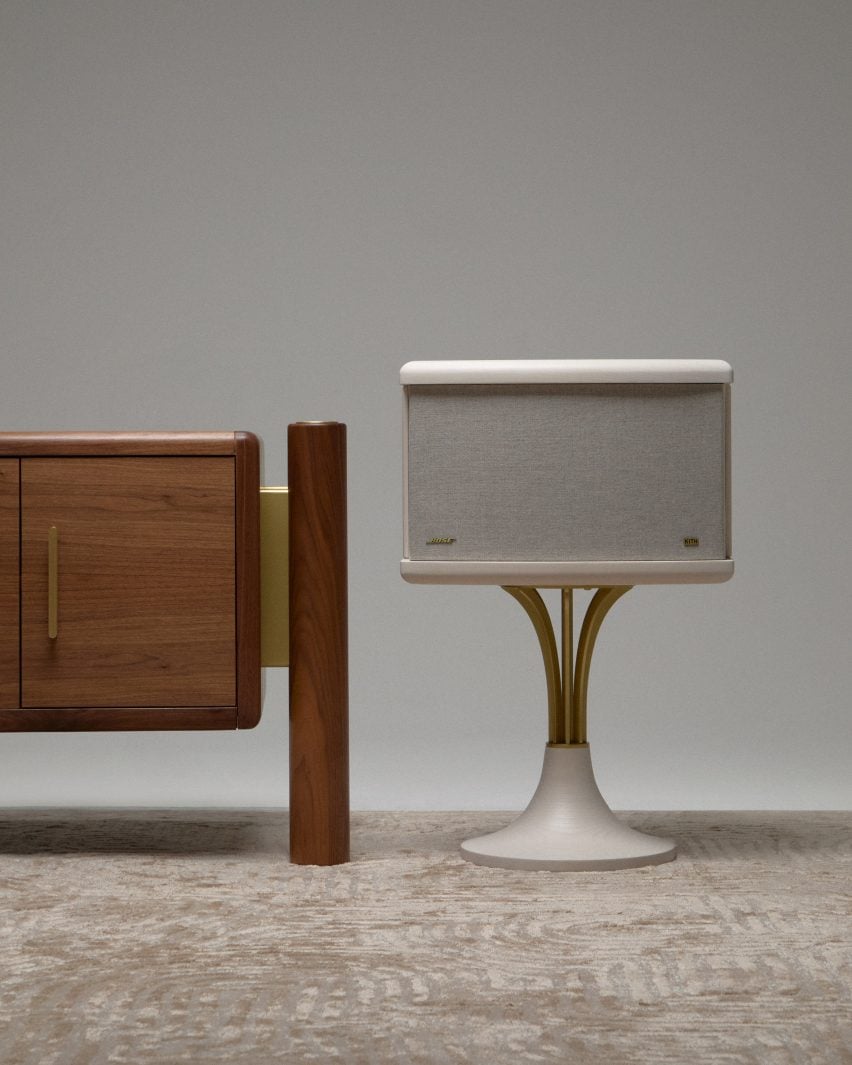
The speakers themselves were rendered with two different wood casings – white-washed ash wood and a natural air-dried walnut.
They rest on pronged pedestals made from hand-rubbed brass that give the product a contemporary aspect as they sprout up from the wooden bases.
Overall, the form of the speaker system stays close to the original, and Kith even sourced the same grey-tone fabric used for the 1968 release for the fronts.
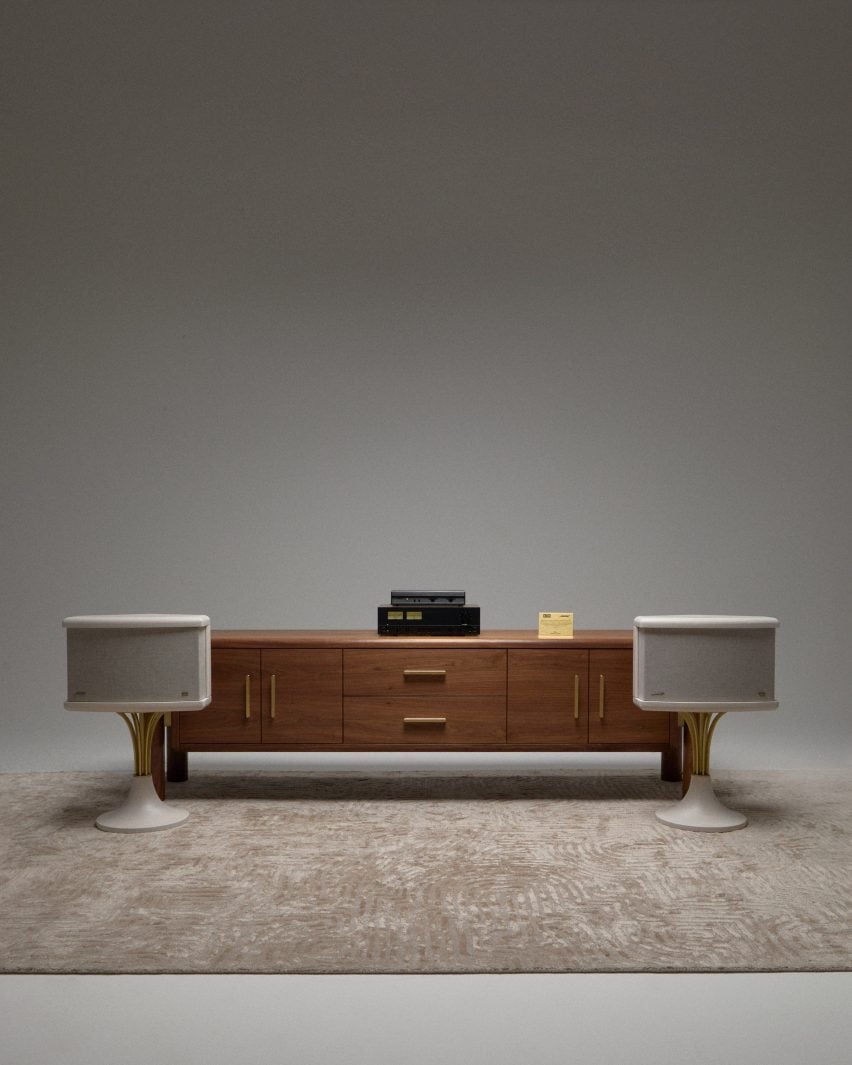
The collaboration between Kith and Bose marks a rare foray into decor design for Kith, but Fieg insisted that he was not capitalising on any trend.
"There is no formula to this project. It's not like I have an agenda of trying to bring furniture into what we do," he said, adding that his own interests often guide his collaborations.
However, he did say that he was "excited" that his audience would be introduced to furniture design via exposure to Jupiter's work. It is Jupiter's first design for a sound system.
Fieg said that he has noticed too much focus on convenience around design for music listening.
"These are, you know, items you have in your room that should be pleasant to look at," he said.
"I think what has happened over the years is convenience has taken over the music industry, in the way that people view what music should look like and what the speakers should look like, but I feel like that's gotten boring, for me."
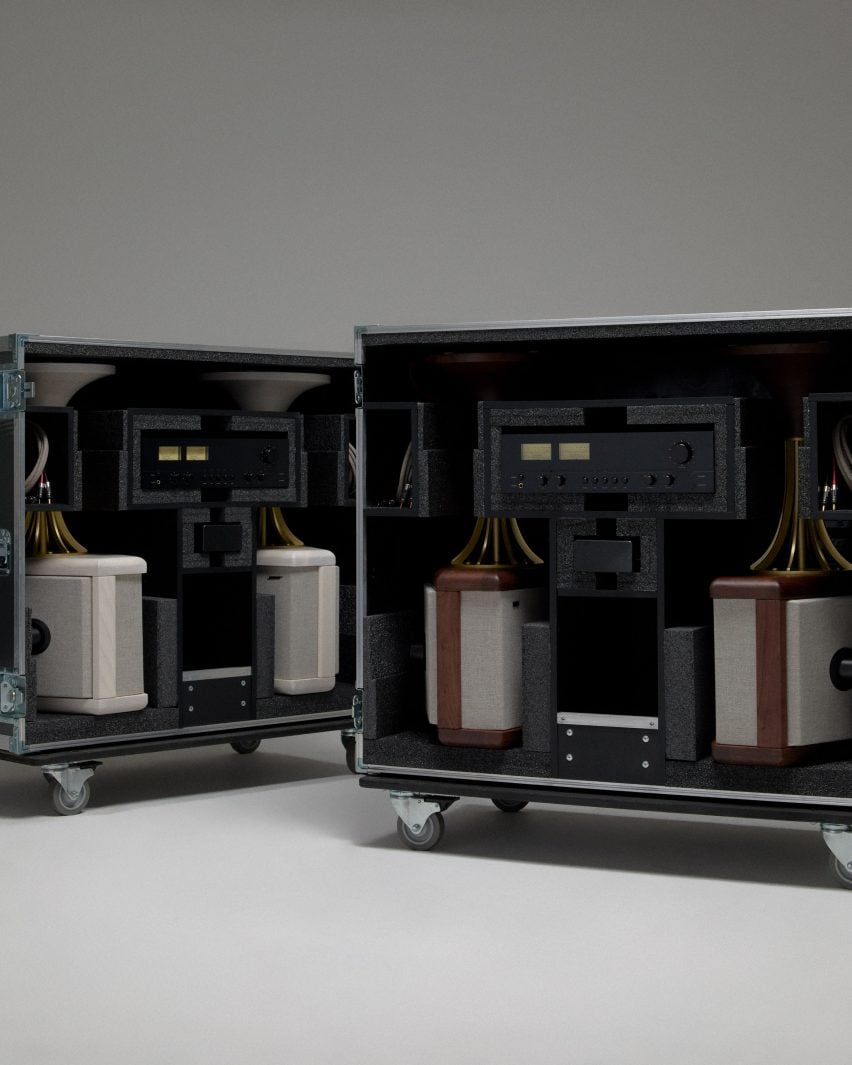
"I'm very passionate about music. It's been the soundtrack to my life. So I want to beautify that," Fieg concluded.
Kith is well-known for its collaboration with other brands. Last year, it released a collaboration with New Balance and the Frank Lloyd Wright Foundation – a sneaker featuring colours from the late American architect's personal palette.
Other designers reviving speakers-as-decor include Australian designer Tom Fereday, who recently collaborated with Tasmanian audio brand Pitt & Giblin to create large speakers clad in aluminium to be "celebrated not hidden".
The photography is courtesy of Kith.